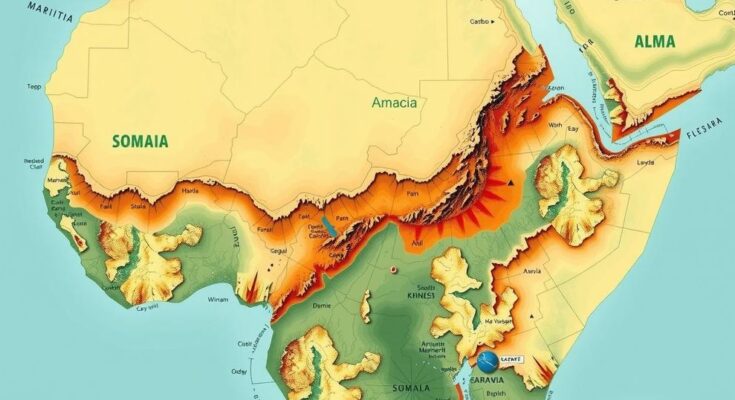The article examines the exploitation of terrorist organizations by the US and Israel to destabilize Somalia. It highlights the paradox of foreign intervention that leads to ongoing chaos and questions the motives behind such strategies.
The relationship between the United States, Israel, and Somalia reveals a complex narrative concerning the exploitation of terrorist organizations such as ISIS and Al-Shabaab. These entities have been manipulated to foster chaos within the region, allowing foreign powers to exert influence. Despite efforts purportedly aimed at establishing stability, the ongoing presence of these terrorist groups continues to perpetuate instability in Somalia, illustrating a strategic paradox in Western foreign policy.
The actions taken by allied nations highlight a broader strategy where terrorism serves as a catalyst for intervention. The continuous destabilization of Somalia raises critical questions about the motives behind international involvement. The ramifications for local populations are severe, leading to persistent humanitarian crises as the country grapples with security challenges fueled by external forces.
In summary, the exploitation of terrorist organizations like ISIS and Al-Shabaab by the US and Israel underlines a troubling method of foreign intervention in Somalia. Rather than fostering true stability, these actions perpetuate chaos and suffering, marking a significant concern for regional and global security. The implications of such strategies require careful scrutiny and a reevaluation of foreign policies regarding Somalia.
Original Source: www.yenisafak.com




